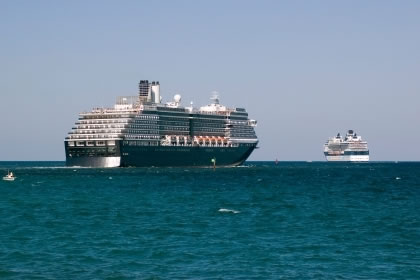New Zealand History
New Zealand is regarded as one of the world’s youngest countries, with its original Eastern Polynesian settlers arriving between 700 and 2000 years ago.
In time these first New Zealanders became known as Maoris. Dutch explorer Abel Janszoon Tasman became the first European explorer to touch on New Zealand soil in 1642. Maori tribes killed many members of Tasman’s crew, effectively discouraging travel to New Zealand until British explorer James Cook arrived in 1768. During his three-year voyage, Cook mapped almost the entire New Zealand coastline. This journey paved the way for many voyages by European and North American ships, which whaled the water, took seals, and traded European goods for Maori timber, artifacts, and foods.
The first Europeans to settle in New Zealand were missionaries, who traveled to the islands in the early 19th century to convert the Maori people to Christianity. The British government became aware of the lawlessness of the European settlement, so sent William Hobson to claim New Zealand. The Treaty of Waitangi was first signed in the Bay of Islands on 6 February 1840. The signing of the treaty is regarded as the point when New Zealand became a nation. New Zealand became regarded as part of the Australian colony of New South Wales, and Okiato became its capital. However when New Zealand became a separate colony the following year, the capital was changed to Auckland. More Europeans settled in New Zealand, especially from the British Isles. However the influx of immigrants led to conflict with the Maoris, culminating in the New Zealand Land Wars of the 1860s and 1870s.
Much Maori land was lost, an issue which remains controversial to this day.
While the United Kingdom provided a representative government to coincide with the passing of the New Zealand Constitution Act in 1852, the first New Zealand parliament didn’t meet until two years later. New Zealand’s ties to Britain were not forgotten, with the nation fighting for the motherland in the Boer War, and both World Wars. Like other countries around the world, New Zealand experienced an economic slump during the Great Depression of the 1930s. However this financial situation turned around after the Second World War. Yet all was not rosy in New Zealand, with many social problems developing as Maori people left their rural homes for life in the city. Protesters felt the defectors were becoming too Westernized and turning their back on their Maori culture and heritage. Today New Zealand is a country which maintains strong, yet more relaxed, ties with Britain. The country still accounts for the largest group of migrants to New Zealand, and many young Kiwis travel to Britain after graduating high school. At the time of writing debate is ongoing about whether New Zealand should continue as part of the Commonwealth or become an independent republic.
